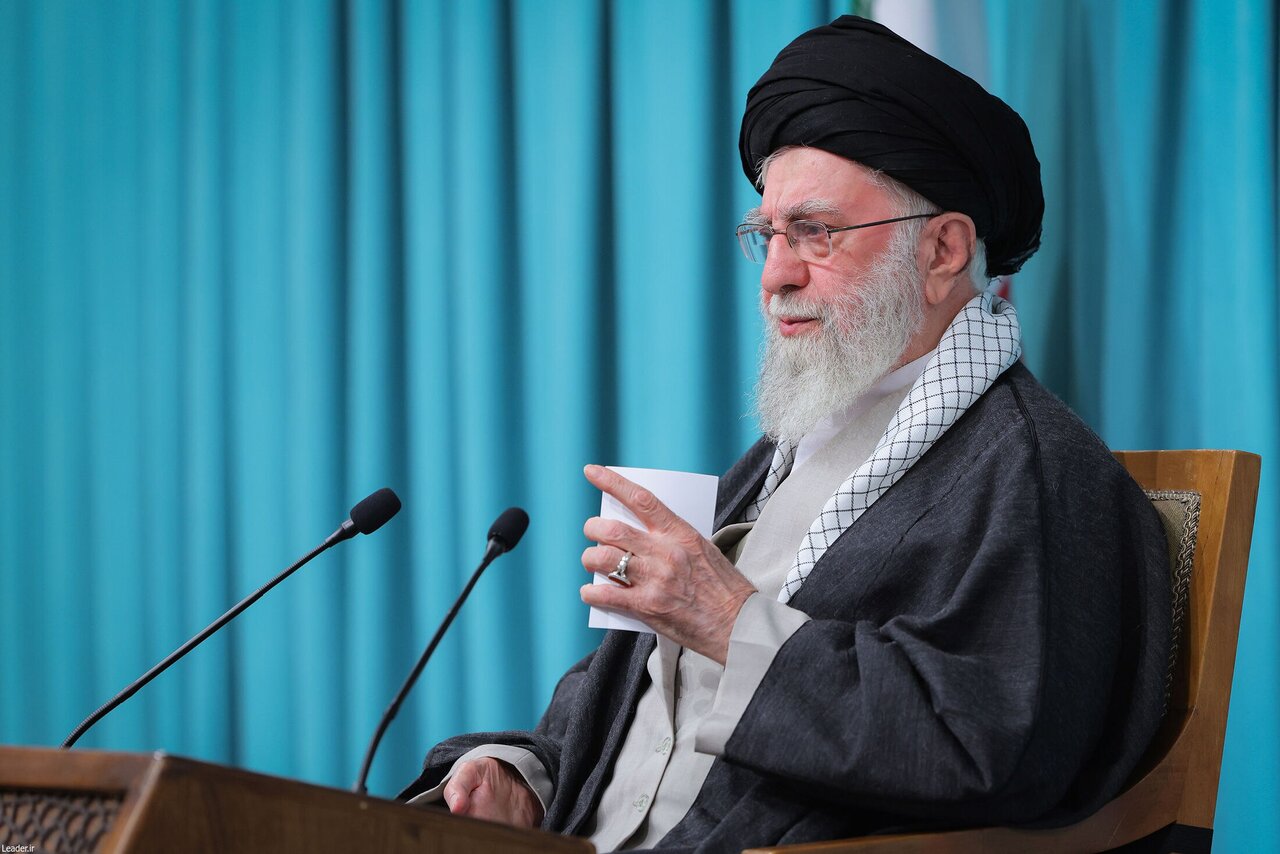‘Nuclear talks with US won’t serve Iran’s national interests’
Leader says negotiations under current circumstances will only bring harm

TEHRAN – In a live address to the Iranian nation on Tuesday, Leader of the Islamic Revolution Ayatollah Seyyed Khamenei focused primarily on the trajectory of Iran's nuclear program.
His remarks came after some analysts and lower-ranking officials suggested renewed negotiations with the United States regarding the program. The Leader stated, however, that engaging in talks with Washington would only be detrimental to Iran.
"They have already determined the results of the negotiations; they want us to dismantle our nuclear program and stop uranium enrichment. How can we call this negotiation? They are dictating the results to us," he stated.
Ayatollah Khamenei emphasized the crucial role of uranium enrichment in the country's development, citing its current and future use in various sectors, including agriculture, medicine, manufacturing, and electricity generation. "We have poured significant energy and resources into our nuclear program to become one of only ten countries in the world that can enrich uranium. Of course, the other nine countries also have nuclear weapons, but we do not seek to have nuclear weapons, not now, and not in the future."
He further argued that, beyond the predetermined outcome of potential talks, the U.S. is employing threats to coerce Iran into negotiations that are ultimately useless and potentially harmful. "If we engage in negotiations while the enemy is threatening us, we will be seen as vulnerable to threats. Americans will think that they can make us do anything they want by threatening us," he explained.
Ayatollah Khamenei stated that no "dignified nation" would agree to negotiate under such circumstances. "I don't know how things will change in the future, but let me tell you that under the current conditions, engaging with America on the nuclear issue is nothing but a deadlock."
The Leader also highlighted a pattern of lying and deception by the U.S. and its Western allies, suggesting that even if a deal were reached, the West would refuse to honor its commitments. He cited the JCPOA, the 2015 nuclear agreement, as evidence of this assessment.
The JCPOA, signed between Iran and the P5+1, limited Iran’s nuclear program in exchange for the lifting of Western sanctions. Washington withdrew from the pact in 2018, and its European allies began reneging on their commitments despite remaining official signatories. Since the U.S. withdrawal, Tehran has faced increased sanctions and economic pressure compared to the pre-JCPOA era.
Iran engaged in multiple rounds of talks with European nations during the Biden administration. However, Biden withdrew from the talks as an agreement neared in 2022, the same year Iran experienced violent riots. Tehran had also agreed to negotiate with the second Trump administration earlier this year. But as it was preparing for a sixth round of scheduled indirect talks in June, its nuclear facilities were attacked by Israel, and later the United States, resulting in over 1000 Iranian deaths during the 12 days of war.
Addressing the war, Ayatollah Khamenei stated that no amount of threat or bombardment could eliminate Iran's nuclear capabilities. "Today, in the country, there are dozens of prominent scholars and professors; this is a report provided to us by the stakeholders, meaning it is a reliable and credible report. Dozens of distinguished scientists, hundreds of researchers, and thousands of graduates from nuclear groups in various related fields are actively working right now."
Leave a Comment